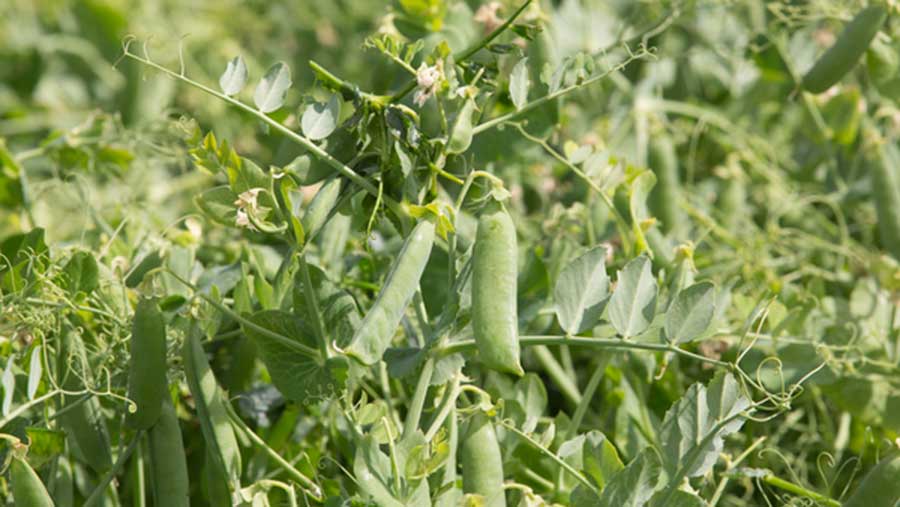Additional subsidies sought for NI pea and bean growers
 © Tim Scrivener
© Tim Scrivener Arable farmers in Northern Ireland are calling for subsidies for peas and beans to be linked to the area grown, to put the crops on an equal footing with those grown in the Irish Republic.
The proposal has been submitted to the Department of Agriculture and Rural Development by the Ulster Farmers’ Union (UFU) as part of a mid-term review of the EU subsidy system.
Under the current policy, all subsidies which have traditionally been linked to historic levels of production are in the process of being transformed into a flat-rate area payment in Northern Ireland.
See also: Insects could replace soya as animal feed protein
But CAP rules do allow for some payments to still be linked to the specific area of crop grown, or the numbers of livestock kept – so-called “coupled payments”.
Following a consultation with members, the UFU has decided that, for most crops and all livestock, subsidies should be decoupled from production.
But a special case should be made for the small area of protein crops grown in Northern Ireland, even though this will mean trimming some subsidy from all other producers to generate the funds.
“Protein crops are different,” said UFU seeds and cereals chairman Allan Chambers. “First of all, we import nearly all of our protein needed for livestock feed, as we do not produce enough ourselves.
“But we are trying to develop the sector, and industry-funded research by Agrisearch has produced some positive results in terms of using peas and beans in dairy rations.
“The trouble we face is that growers south of the border are being paid €280/ha (£224/ha) to grow the crop and we can’t compete.”
As such, the UFU is seeking a coupled payment of £220/ha for its pea and bean producers to take effect from 2017.
“We only currently grow about 300-400ha,” said Mr Chambers. “We have estimated that a reduction of just 23p per farmer entitlement across the board would be enough to provide a coupled payment for up to 1,000ha of protein crops.”
Supporting Northern Irish producers in this way would mean local producers would be able to reap the benefit of the work being done by Agrisearch, he said, rather than transferring the benefits to growers in the South.
